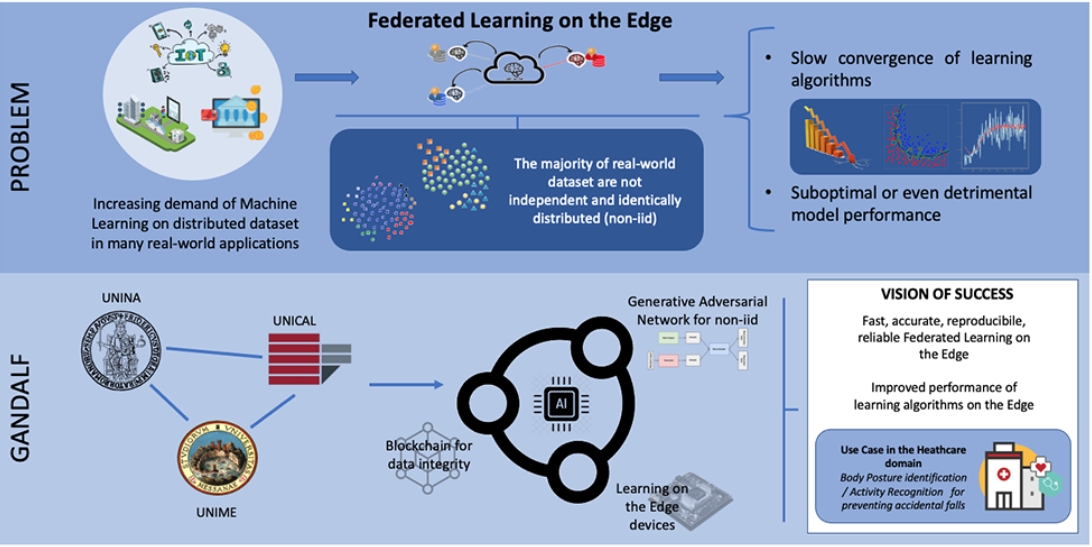
Progetti di Rilevante Interesse Nazionale (PRIN)
Our research group is proud to be involved in three highly prestigious Nationally Relevant Research Projects (PRIN), underscoring our commitment to advancing cutting-edge knowledge and technology. These projects—GANDALF, DIRECTIONS, and AI-MEC—exemplify our dedication to tackling contemporary challenges through innovative research in fields such as Federated Learning, seismic analysis, and circular economy initiatives.
GANDALF – Gan Approaches for Non-iid Aiding Learning in Federations
The GANDALF project, led by Francesco Piccialli as Principal Investigator (PI), focuses on addressing one of the key challenges in Federated Learning—non-IID data. By leveraging Generative Adversarial Networks (GANs) and edge computing, the project aims to improve learning across decentralized nodes. This approach has significant potential in healthcare, where privacy-preserving and decentralized learning can enhance diagnosis without the need for data sharing, thus overcoming privacy and security issues. Our research group plays a crucial role in designing methodologies to tackle these challenges, enabling more efficient learning models.

Figure 1: GANDALF Framework
DIRECTIONS – Deep Learning Aided Foreshock Detection of Induced Mainshocks
This project, with Francesco Piccialli as Principal Investigator (PI) for our group and Vincenzo Convertito as the overall PI, aims to implement deep learning algorithms to detect foreshocks in induced seismicity. By analyzing patterns in seismicity evolution, DIRECTIONS seeks to develop a real-time probabilistic warning system that will help prevent the adverse consequences of induced earthquakes during geothermal energy extraction. Our team is at the forefront of developing AI methodologies to ensure accurate and timely foreshock detection.

Figure 2: DIRECTIONS Framework
AI-MEC – Artificial Intelligence Aided Approach to the Mechanical Recycling of Polyolefin Wastes
AI-MEC, led by Roberta Cipullo (Department of Chemical Sciences) as Principal Investigator (PI), is dedicated to advancing the circular economy through AI-driven mechanical recycling of polyolefin plastics. The project integrates Artificial Intelligence across the entire recycling process to optimize waste sorting and material compatibility. This interdisciplinary project demonstrates the vast applications of AI in enhancing sustainability, particularly in the critical field of waste management and recycling. Salvatore Cuomo is responsible for the activities of our group (MODAL) and for DMA’s contribution to AI-MEC.
Our involvement in these projects solidifies our position as a key player in the national research landscape, contributing to groundbreaking advancements in AI, sustainability, and beyond.
